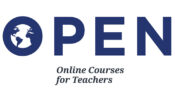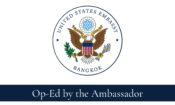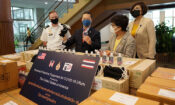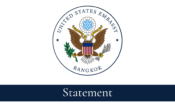Last updated: October 13, 2020
Update 10/13/2020: According to verbal communication from the Royal Thai Government’s Immigration Bureau, non-Thai nationals can visit any Thai Immigration office to request a 60-day extension of stay. We have been told that there will be a charge for this. Thai Immigration will not require a letter from the Embassy as part of the extension request, so the U.S. Embassy and Consulate General Chiang Mai will no longer provide letters of support for Thai visa extensions. For more information about applying for Thai visa extensions, please visit www.immigration.go.th or contact the Thai Immigration Bureau.
Ask a COVID-19 Question
- Frequently Asked Questions – December 16, 2020
- Health Alert: U.S. Embassy Bangkok, Thailand – July 31, 2020
- FAQs on Economic Impact Payments – April 17, 2020
- Current Alerts and Messages for Thailand
See Prior Updates
- Update 10/01/2020: The Royal Thai Government officially approved a grace period until October 31, 2020 for persons in Thailand in temporary visa status (of all visa types) to depart the country. In light of this decision by the Royal Thai Government, visa extension letters from the U.S. Embassy are not required to remain in Thailand.
- Update 9/10/2020:The ACS units in Bangkok and Chiang Mai are accepting mail-in DS-82 adult passport renewal applications, and are now open for in person appointments for notary services, Certificate of Report of Birth Abroad (CRBA) services, and passport services for individuals who are required to submit a DS-11 passport application (minor applicants, first-time adult, first application after a lost/stolen passport).
- Update 08/27/2020: The Royal Thai Government officially approved a grace period until September 26, 2020 for persons in Thailand in temporary visa status (of all visa types) to depart the country. For updated information about this, please review the “Entry and Exit Requirements” section below.
- Update 07/06/2020: Royal Thai Government Extends State of Emergency and Incoming International Flight Ban Until July 31: On June 30, the Royal Thai Government officially extended the national state of emergency until July 31, 2020. Most foreign nationals are still banned from entering Thailand (for exceptions please see the “Country Specific Information” below). The Civil Aviation Authority of Thailand (CAAT) also announced the extension of the ban on incoming international commercial passengers until further notice. The flight ban does not affect outbound flights; there are still daily outbound flights available with connections to the United States.
- Update 5/29/2020: Royal Thai Government Approves Entry for Non-Thai Nationals with Work Permits: On May 28, the Royal Thai Government (RTG) announced that non-Thai nationals who either possess a valid work permit or have already been granted permission from a Thai government agency to work in the Kingdom can apply for permission to enter the Kingdom.
- Update 05/26/2020: Royal Thai Government Extends Emergency Decree Until June 30, 2020: The Royal Thai Government (RTG) decided to extend the national state of emergency until June 30, 2020, to prevent a second wave of COVID-19 infections in Thailand. The ban on incoming international flights remains in effect also. The RTG continues to discuss the further easing of lockdown measures.
- UPDATE 5/18/2020: CAAT Extends Ban on Incoming International Flights Until June 30: On May 15, the Civil Aviation Authority of Thailand (CAAT) announced the extension until June 30, 2020 of the ban on incoming international flights.
- UPDATE 4/30/2020: Phuket Airport to Remain Closed: The Civil Aviation Authority of Thailand (CAAT) announced the Phuket International Airport will remain closed until further notice.
- Update 4/28/2020: National State of Emergency/Nation-wide Curfew Officially Extended to May 31: Today, the government spokesperson announced that the Cabinet has decided to extend to May 31 the national state of emergency and related measures, which includes maintaining border closures and the present 10 pm to 4 am curfew.
- Update 4/27/2020: Automatic visa extensions are in effect through July 31 for all types of temporary stay visas. The Civil Aviation Authority of Thailand (CAAT) extended the ban on incoming international flights until May 31. The National State of Emergency will likely be extended to May 31 as well. The Cabinet is scheduled to meet and vote on the measure on April 28
- Update 4/21/2020: KLM announced today the airline will cease operations from Bangkok until after April 30. JAL plans to reduce daily flights from Bangkok to twice per week.
- Update 4/20/2020: VietJet Air announced it is halting flights between Krabi Airport and Bangkok’s Suvarnabhumi Airport (BKK) until May 1, 2020. There are no flights out of Krabi Airport until after April 30.
- Update 4/14/2020: The Civil Aviation Authority of Thailand (CAAT) announced the extension until 30 April 2020 of the ban on incoming international flights. The extension will likely mean a further reduction in outgoing international flights in the days ahead.
- Update 3/30/2020: Several provincial governments in southern Thailand announced the closure of their borders – prohibiting entry by land and sea – effective March 30, 2020 until further notice. These provinces include: Phuket, Phang Nga, Pattani, Narathiwat, and Yala. Air travel via Phuket remains available. Please visit the Tourism Authority of Thailand’s website for updated information. Additional information about restrictions across Thailand can be found at the Ministry of Public Health’s Department of Disease Control COVID-19 website.
- Update 3/29/2020: The Tourism Authority of Thailand announced that Phuket Province is requesting all residents and tourists remain in their residence from 8:00 pm to 3:00 am and has announced closures of beaches, zoo and walking street. Please visit the Tourism Authority of Thailand’s website for updated information. Additional information about restrictions across Thailand can be found at the Ministry of Public Health’s Department of Disease Control COVID-19 website.
- Update 3/27/2020: On March 25, Prime Minister Prayut Chan-o-cha declared a state of emergency, effective March 26, in order to reduce the spread of COVID-19 in Thailand. In a televised announcement the Prime Minister announced that an initial set of emergency measures that take effect today, Thursday, March 26, 2020. Most restaurants, stores, and entertainment venues will be closed except for food delivery, supermarkets, restaurants’ delivery service providers and food markets, drug stores, convenience stores, banks, and other stores selling necessary items. Thai law controlling emergency situations gives the Prime Minister’s Office broad authorities, and more emergency measures further restricting movements and activities in Thailand may be announced at any time.
- Update 3/27/2020: Thai Airways is the latest airline to suspend flights to Europe from April 1 – May 31, 2020 and all regional flights from March 25 – May 31, 2020. If you plan to return to the United States, please make your travel arrangements as soon as possible.
- Update 3/22/2020: On March 21 the Bangkok Governor announced that malls, restaurants, food halls and similar food consumption areas, hairdressers, swimming pools, golf courses, cockfighting arenas, and arcades are among the 26 venue types closed through April 12. Supermarkets, stalls selling food and fresh produce, restaurants’ takeaway services, pharmacies and other business that “sell goods used in daily life” are exempted from the closure order. Local media also reported Nonthaburi, Nakhon Pathom, Pathum Thani, Samut Prakan and Samut Sakhon – all provinces surrounding Bangkok – will implement similar measures for the same period.
Country-Specific Information
- Thailand’s borders are still closed for all foreign nationals with few exceptions (see Entry and Exit Requirements below). Thailand has resumed most domestic transportation options, (including airport operations) and business operations (including day cares and schools). Other improved conditions have been reported within Thailand. Please see this link for the current Thailand Travel Advisory.
- National State of Emergency: The Royal Thai Government declared a national state of emergency in order to reduce the spread of COVID-19 in Thailand until further notice. Thai law controlling emergency situations gives the Prime Minister’s Office broad authorities, and more emergency measures further restricting movements and activities in Thailand may be announced at any time.
- If you are concerned about your continued stay in Thailand, we advise you to arrange for immediate return to the United States. Travelers should be prepared for travel restrictions to be put into effect with little or no advance notice. If you do not return to the United States, you should be prepared to remain abroad for an indefinite period.
Entry and Exit Requirement
- Are U.S. citizens permitted to enter? No, except certain categories (see below)
- Is a negative COVID-19 test (PCR and/or serology) required for entry? Yes
- Are health screening procedures in place at airports and other ports of entry? Yes
- Thai Visas to Remain in Thailand: On September 30, 2020 the Royal Thai Government officially approved a grace period until October 31, 2020 for persons in Thailand in temporary visa status (of all visa types) to depart the country. The measure was published on that date in the Royal Thai Gazette. The grace period further extends the automatic visa extension that was first announced in late March due to Covid-related travel difficulties.
- According to verbal communication from the Royal Thai Government’s Immigration Bureau, non-Thai nationals can visit any Thai Immigration office to request a 60-day extension of stay. We have been told that there will be a charge for this. Thai Immigration will not require a letter from the Embassy as part of the extension request, so the U.S. Embassy and Consulate General Chiang Mai will no longer provide letters of support for Thai visa extensions. For more information about applying for Thai visa extensions, please visit www.immigration.go.th or contact the Thai Immigration Bureau.
- Please note the Royal Thai government is under no obligation to extend short-term visas and may end the practice at any time. If your request is denied or you do not wish to change to an appropriate long-term visa category, you should begin making plans to depart Thailand as soon as possible. Please contact the U.S. Embassy if you need financial assistance to depart Thailand.
- Entering Thailand: Most foreign nationals remain barred from entering Thailand until further notice. The Royal Thai Government has also extended its ban on inbound international passenger flights until further notice. The Civil Aviation Authority of Thailand (CAAT) announced on June 29, 2020 flights carrying the following types of passengers will be allowed into Thailand:
- Thai nationals.
- Persons with exemption or persons being considered, permitted, or invited by the Prime Minister, or the head of responsible persons accountable for resolving state of emergency issues to enter the Kingdom, as necessary. Such consideration, permission or invitation may be subject to specified conditions and time limits.
- Non-Thai nationals who are a spouse, parent, or child of a Thai national.
- Non-Thai nationals who hold a valid certificate of residence, or permission to reside in the Kingdom.
- Non-Thai nationals who hold a valid work permit or allowed to work in the Kingdom, including their spouse or children.
- Carriers of necessary goods subject to immediate return after completion.
- Crew members who are required to travel into the Kingdom as part of their duties and have a specified date and time for return.
- Non-Thai nationals who are students of educational institutions approved by Thai authorities, including the parents or guardians of the students.
- Non-Thai nationals in need of medical treatment in Thailand, and their attendants. However, this shall not include medical treatment for COVID–19.
- Individuals in diplomatic missions, consular affairs, international organizations, government representatives, foreign government agencies working in Thailand, or individual in other international agencies as permitted by the Ministry of Foreign Affairs, including their spouse, parents, or children.
- Non-Thai nationals who are permitted to enter the Kingdom under a special arrangement with a foreign country.
Those seeking to enter Thailand must request a Certificate of Entry from the Royal Thai Embassy or Consulate. All arrivals are subject to a 14-day quarantine which must be spent at a government quarantine facility or alternative state quarantine (ASQ) facility. The only aircraft approved to enter the Kingdom of Thailand include the following:
- State or military aircraft
- Emergency landing flights
- Technical landing flights without disembarkation
- Humanitarian aid, medical and relief flights
- Repatriation flights
- Cargo flights
U.S. citizens seeking entry into the Kingdom of Thailand who meet the established criteria should contact the Royal Thai Embassy or Consulate closest to their current location for more information on gaining entry to Thailand. Please note that more emergency measures further restricting movements and activities in Thailand may be announced at any time.
Movement Restrictions
- Is a curfew in place? No
- Are there restrictions on intercity or interstate travel? No
- Guidance Regarding Travel Restriction Easement: The U.S. Embassy in Bangkok and Consulate General in Chiang Mai advise all U.S. government personnel and U.S. citizens residing in Thailand to exercise caution as Thailand eases travel and social restrictions. It is recommended that any personal trip be via a mode of transport that allows you to maintain appropriate social distancing, such as a personally-owned vehicle or individually-hired vehicle.
- If you chose to travel, please consider the following:
- Research the accessibility, quarantine requirements, availability of lodging, and documentation requirements for any inter-provincial trip in Thailand.
- All travelers should carry appropriate identification and wear face coverings when in public.
- Travelers should also comply with thermal screening checkpoints.
- All travelers are strongly encouraged to monitor travel conditions and requirements at the Tourism Authority of Thailand’s website. Information about restrictions across Thailand can also be found at the Ministry of Public Health’s Department of Disease Control COVID-19 website.
- Domestic Flights to Resume Under Strict Guidelines: The CAAT has announced new guidelines for the operation of domestic flights within Thailand. The key measures include: 1) passengers must wear face masks and gloves at all times; 2) passengers must adhere to airlines’ social distancing requirements from check-in and boarding through landing and there must be empty seats between passengers; 3) flight crews will wear masks and gloves at all times; and 4) flight crews will not serve food or beverages on the plane and passengers are prohibited from bringing outside food on the plane.
Quarantine Information
- Are U.S. citizens required to quarantine? Yes, upon entry there is a mandatory 14-day quarantine. Please see “Entry and Exit Requirements” above for more information.
- The RTG has designated COVID-19 a dangerous communicable disease under the Communicable Diseases Act 2015 (B.E.2558). Please be aware that if you come to the attention of Thai health authorities with fever and flu-like symptoms, and have traveled internationally or had close contact with a known COVID-19 case within the past 14 days, you will be placed in isolation and required to undergo testing which can take up to 48 hours. If you are found to be positive, you will be hospitalized until symptoms resolve and you have two negative tests separated by 24 hours.
COVID-19 Testing
- U.S. citizens can contact the Thai Department of Disease Control directly at 1422for information on COVID-19 testing facilities and treatment locations. They have English-language staff. All public hospitals will take COVID-19 patients. Private hospitals have been asked to treat COVID-19 patients as well, but it is up to the hospital. In both cases, payment must be made prior to treatment. For a list of medical facilities in Thailand, please see this link.
- COVID-19 Treatment: Foreign nationals are required to pay for COVID-19 treatment while in Thailand. The cost of medical care for non-Thais will be charged to your health insurance, Social Security Fund or Welfare Fund. Testing and diagnosis are free of charge if you meet the Person Under Investigation (PUI) requirements such as fever + respiratory symptoms + travel to a high-risk area (or) respiratory symptoms, cough, runny nose, sneezing, sore throat (per the Ministry of Public Health).
Transportation Options
- Are commercial flights operating?
- Domestic commercial flights – Yes.
- International commercial flights into Thailand – No.
- International commercial flights departing Thailand – Yes, but limited (see below).
- Is public transportation operating?
- Masks are required on all public transit, in taxis and ride-sharing services.
- Flights Departing Thailand: The following airlines are currently offering outbound flights from Bangkok with connections to the United States: Korean Air, Qatar Airways, Ethiopian Airlines, Japan Airlines, and Air Asiana. More airlines are adding flights, so check the airline websites for the most up to date information. There are currently no international flights departing from Chiang Mai International Airport or Phuket International Airport. U.S. citizens should also consider the need to travel from their current location in Thailand to Bangkok in order to catch an international flight.
- If you are a U.S. citizen who does not have access to funding, you may be eligible for a repatriation loan. A repatriation loan is only for immediate travel to the United States and cannot be used to remain in Thailand. The Embassy can use the repatriation loan to purchase a ticket to the United States on the next available flight. The loan can also be used to pay for lodging and food associated with the impending travel. This is a U.S. Government loan program which you will have to repay to be eligible for another U.S. passport. If you need financial assistance in order to return immediately to the United States, please email the U.S. Embassy in Bangkok at acsbkk@state.gov or the Consulate General in Chiang Mai at ACSCHN@state.gov.
Fines for Non-Compliance
You risk entry-bans, fines, and possible arrest for not complying with social distancing/mask rules.
Consular Operations
- American Citizen Services (ACS) Operations:
- The ACS units in Bangkok and Chiang Mai are accepting mail-in DS-82 adult passport renewal applications, and are now open for in person appointments for notary services, Certificate of Report of Birth Abroad (CRBA) services, and passport services for individuals who are required to submit a DS-11 passport application (minor applicants, first-time adult, first application after a lost/stolen passport). Please review the Make an Appointment webpage for more information.
- If you have a question about appointments for passport, CRBA, and notarial services at this time, please review our scheduling website here for more information.
- Visa Services: Please review our latest announcement for information about visa services.
Local Resources
- Thai Government Public Relations Department
- Immigration Bureau of Thailand
- Thailand’s Ministry of Public Health’s Department of Disease Control COVID-19 website.
- The Ministry of Public Health provides a list of 44 laboratories approved to conduct COVID-19 testing found here.
- The Tourism Authority of Thailand’s website
Other Useful Information:
- COVID-19 crisis page on travel.state.gov
- Thailand Information and Travel Advisory page from travel.state.gov.
- CDC page on COVID-19
- Centers for Disease Control and Prevention (CDC) Travel Recommendations by Country.
- See the CDC’s latest recommendations about reducing your risk of contracting COVID-19.
- Visit the COVID-19 crisis page on travel.state.gov to review the Department of State’s Level 4 Travel Warning.
- Visit the Department of Homeland Security’s website on the latest travel restrictions to the U.S.
- Enroll in Smart Traveler Enrollment Program(STEP) to receive health updates from American Citizen Services in Thailand.
- Follow the U.S. Embassy Bangkok on Facebook, Bangkok American Citizen Services on Facebook and Twitter, and the U.S. Consulate General Chiang Mai on Facebook.














